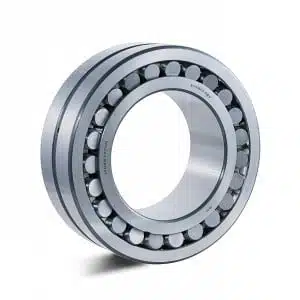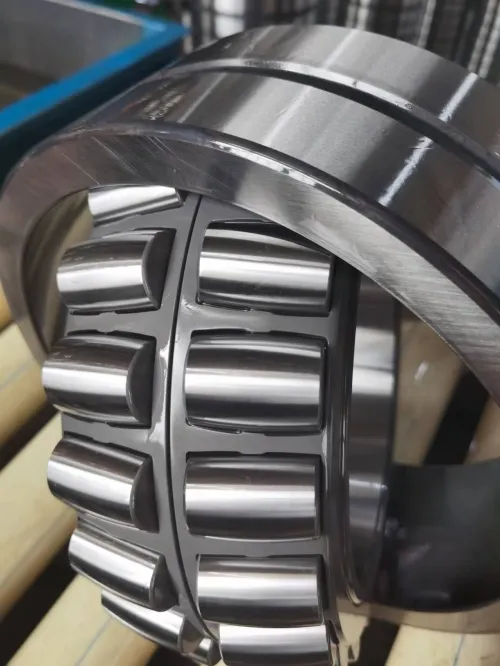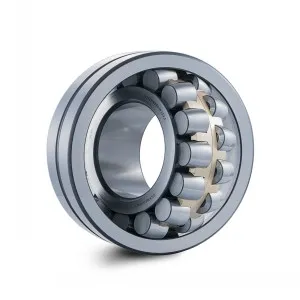If you are in the market for a new spherical roller bearing, there are a few factors you should consider. These factors include the Dimensions, Material, Self-alignment and Load carrying capacity. Before making your decision, it is advisable to read a few tips from the bearing manufacturer. Here are some of the most important factors to consider when buying a new bearing. Also, be sure to check the setscrew tightness.
Material
The material of spherical bearings can vary greatly, but the most common materials are brass, pressed steel, and chrome steel. Some bearing manufacturers even offer special coatings for extra corrosion protection. The cages that contain the bearings are usually made of brass or pressed steel. A proper lubrication system is essential to keep these bearings functioning properly. The cage is the main component of a spherical bearing.
The lubricant must be compatible with the cage material. For example, greases are grouped according to their maximum working temperatures. They often contain oxidation inhibitors and moisture-absorbent additives. EP additives are useful for bearings in high-temperature environments. However, greases should be changed on a regular basis, as aged oil can cause plastics to degrade. The manufacturer should follow the recommended oil changes.
In order to maximize its life, spherical bearings require proper mounting dimensions. The shaft and the bearing housing must have sufficient height to prevent stationary parts from being grazed. In addition, spherical bearings are compatible with bearing housings, which are easy-to-fit and fulfill the requirements of modern machine and plant design. Additionally, they have excellent maintenance characteristics.
Spherical bearings are commonly used in heavy-duty industrial applications. The spherical shape of the roller raceway helps it compensate for misalignment and shock loads. This feature makes them ideal for heavy-duty industrial applications. This is why spherical bearings are preferred by many industrial users. But it’s important to understand what makes these bearings work in order to ensure they perform at their optimum level.

Self-alignment
A self-aligning bearing has an inner ring and a ball assembly arranged within the outer ring. The inner ring rotates freely around the center of the bearing, allowing it to compensate for misalignment, which can be caused by misalignment of the shaft or housing. Self-aligning ball bearings are similar to deep groove ball bearings, but are used in general-purpose applications.
Single-row self-aligning bearings have a lower radial load capacity than deep groove bearings. This is because the outer spherical raceway has a large radius, and thus provides little ball-to-groove contact. The large radii of the spherical raceway compensate for this reduced contact area by having two staggered rows of balls.
These self-aligning bearings are ideal for applications where there is angular displacement or misalignment. Self-aligning bearings have a wide radial dimension, a tapered bore, and special tolerances. When selecting a self-aligning bearing, the design and speed of the system should be taken into consideration. Self-alignment is also an important consideration for spherical roller bearings.
Self-aligning roller bearings also have a large tolerance for misalignment. Because they are self-aligning, they compensate for misalignment even with large angular error. This is especially useful when a rigid shaft is not aligned perpendicularly to the bearing housing. Most self-aligning roller bearings can accommodate misalignments of up to +2 degrees, which equates to about 8.3 inches in 10-ft centers.
The self-alignment of a spherical bearing is dependent on the load of the rolling elements. These components need a minimum axial load to rotate. SRBs cannot be preloaded, so you should make sure to ask the bearing manufacturer to check for this information. You can also add extra radial load by purposely increasing the torque on the shaft. The extra radial load is also needed for self-alignment.
Load carrying capacity
In a typical spherical bearing, the load carrying capacity is the axial force applied to the rolling element. The smaller the diameter, the higher the load carrying capacity. However, the minimum load must be kept below this limit to avoid damage to the cage. In order to reduce the minimum load, proper lubrication must be used. In low-temperature environments, the lubricant’s viscosity increases. Likewise, the minimum load can be lowered by applying high-quality lubrication. Moreover, the operating temperatures of spherical roller bearings are increased if heat treatment processes are conducted on the materials. High load capacity is what we supplied.
The thrust load can be accommodated over a wide speed range with hydrodynamic lubrication. The conventional methods of determining safe thrust loads should be reworked. The oil viscosity should be introduced as a parameter. This increases the load carrying capacity at the flange. The high thrust load capacity of a spherical bearing is dependent on its axial load carrying capacity.
While the size of a spherical roller bearing cannot be determined from its diameter, it is often able to accommodate the total weight of the system. However, the range of spherical bearing load carrying capacity may be restricted by its design. The variety in spherical roller bearings is limited but there are specific designs to meet specific application needs. The range of available spherical bearings can be found online.
Life adjustment factors have two kinds, a1 and b1. The first one is the basic rating life and the second is the a1 factor. Usually, a1 factors indicate the life of the bearing, while b1 factors show its reliability. Both factors are important to determine spherical bearing load carrying capacity. If your bearing is designed to carry a purely axial load, the a3 factor is not sufficient.
Seals
Seals for spherical bearing assemblies are critical in the mining and quarrying industries. This equipment must be durable, robust, and able to handle extreme conditions. For these reasons, NSK developed the first detachable seal for Spherical Roller Bearings. The detachable seals increase bearing life and enable accurate management of proper clearance during bearing assembly. The seals prevent dirt from entering the bearing and extend bearing life.
The 6000 series seal is used in applications that have excessive thrust loads and press fit of the bearing cup into the bearing housing bore. This series includes two excluder lips that provide excellent contaminant exclusion. The elastomeric locator lip enables the seal to work with the machined ring and retain the grease and protect the bearing from contaminants. The 6000 series seal is available in both a CA and CE type. These seals are used in mining equipment and on ships.
Another option for the CJ style of seal is a single lip design. It features the same lip design as the CE style, but is heavier and requires a shoulder to be secured in the bearing cavity. The nose gasket provides a tight seal against the front face of the cup. Another option is the 2000 series seal. The double lip provides excellent protection and grease retention. This seal features a pressure relief that prevents grease from escaping during relubrication.
The CE-8000 style seal is also used for the CST style. It has a rubber-covered seal face that extends past the housing chamfer, and the CST style has a metal O.D. for additional O.D. sealing. The CE-8000 style has two main variations. The CST seal is the same as the CE-8000 but features a rubber-covered face, which makes it an excellent option for corrosive environments.

EVERGLORY
As one of the leading spherical bearing manufacturers, EVERGLORY offering the highest quality spherical bearings. We supply all spherical roller bearing series, please check our catalogs.


